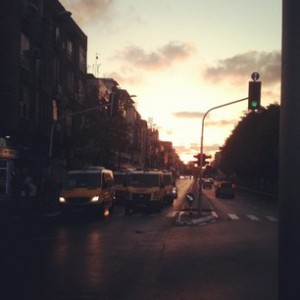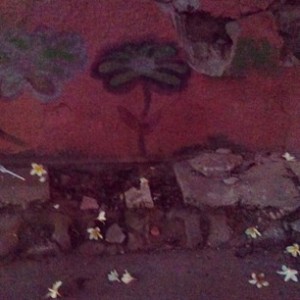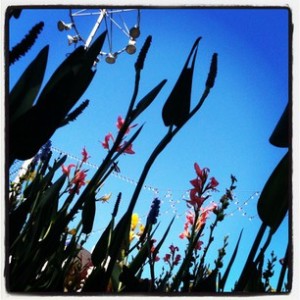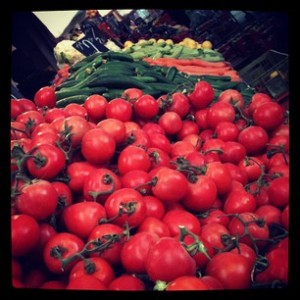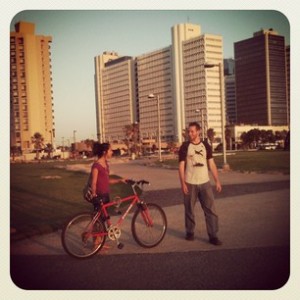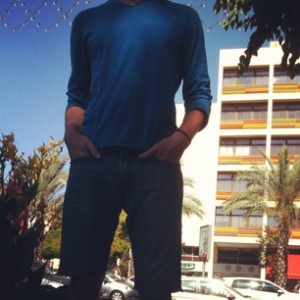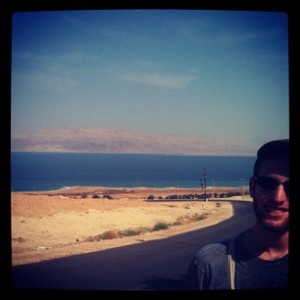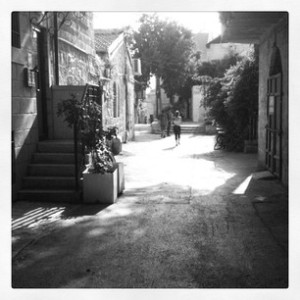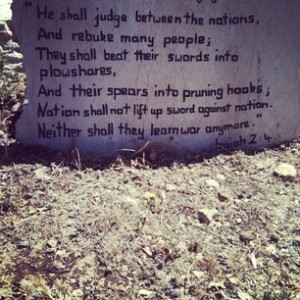The other day, not long after I published a piece on a Palestinian child being arrested and abused*(see more on this at the bottom of this piece), I received an email from a friend:
“you know I support you in the work that you do, but do you ever have anything positive to say about Israel on the public arena?”
This is not the first time I’ve gotten such an email, but usually the sender is not completely genuine about the first part, ie, the “I support the work you do” part, and thus the email feels like more of an attempt at silencing than an opening for discussion. However, this friend had recently come with me to Al Arakib, and he had been open to truly listening, seeing and learning there. Which is not easy at all. Knowing that the first part of his email was genuine, I decided to give the second part of his email serious thought and meditation over the weekend (and to grab coffee with him, as I try as hard as is geographically possible not to have hard conversations with people I care about over the interwebs).
In thinking, I came to a number of still-working conclusions.
The First Conclusion is this: I do not have a positive vision as to what should be here, in terms of political “solutions,” arrangements, et cetera. I do, however, have a very strong sense of what should not be here (for a more detailed list, see: Rothman, Blog About Things That He Thinks Should Not Be, Everyday, All Pages, http://www.thelefternwall.com). Here’s a metaphor I made up for this friend: let’s say Israel is a garden. There are some people who will try and plant flowers of solutions, of development, of progress here in this garden, and I think that is a good thing and I support them. However, I see my role not as planting flowers, but rather as weeding, weeding out violence, weeding out racism, weeding out oppression, weeding out hatred, et cetera. The weeds here have grown quite powerful, and probably by the fault of no single gardener or even group of gardeners but rather by the breezes, rainfalls, insects and chemicals of history and political circumstance. Someone needs to take them out so that there will be room for others to plant the flowers. If you try to plant a flower of “solution” in a garden overrun with weeds of violence or racism, the flower won’t have much of a chance to grow. So when I am writing these pieces about kids being arrested or about the State evicting families or about the JNF destroying villages, I am trying to weed out what is bad in a place I love, in hope that this place will be able to one day be a more beautiful garden for everyone who lives in and around it. So no, I do not often say positive things about Israel (as a State) in a public arena. But:
The Second Conclusion is: maybe I should. I can only imagine good coming out of my articulating for readers what it is I love about living here, whether to complicate the picture for those who are overly-excited about Palestine/Palestinians (if you will notice, I don’t often write positive things about Palestine/Palestinians either, and I am not a Palestinian Nationalist, even as I support Palestinians’ right to live in freedom, like everyone else), or to clarify for readers who find my work too critical that I truly do what I do out of love and concern, and a desire to build and improve, even if I think that building needs to come from weeding dangerous phenomena (phenomena, and never people: be careful with anyone who talks about about ”the problem” with entire groups, whether that be The Haredim (the Ultra-Orthodox who bear the brunt of a disproportional amount of the Israel public’s fury) or The Refugees (who have recently been targeted by some individuals in South Tel Aviv– not by The Mizrahim/Jews of Arab Origin) or even The Settlers (many of whom did not choose to live where they live, and most of those who did chose to live in where they live also want to live normal, peaceful lives also, even if their choice of living-place is misguided and harmful).
The Third Conclusion is: I will indeed make a list of things I really like. Which is fun for me too.
1. The people. In general I really like Israeli people, even if I disagree with many of them re: politics/Palestine. I like their directness, I like their humor, I like their warmth, I like the diversity of history and of journey and of identity and of belief, I like the way we all share a sort of nutsness, especially Jerusalemites.
2. People care. Sort of a follow up from #1, but again, even if people care in a way that is different than I do, people do care about more than just themselves, or things, or the way folks dress or talk, and there is a sense of something bigger. I think apathy is way more dangerous than most views I disagree with strongly.
3. Food. The food here is amazing. The vegetables, the fruits, the bread, the mixture of East and West. This is not a small thing.
4. The healthcare system/other remainders of socialism. Coming from the US, where the healthcare system is abysmal if you don’t have a lot of money, I really appreciate the socialized healthcare system here, and even if things are sliding in the direction of US capitalism, I think that there’s still a basis here for a re-shift in the direction of meaningful anti-capitalism/increased socialism.
5. The [lack of] dress code/time code. The first day of work, I came into the office at 8:30 AM sharp, wearing a button-up shirt and dress shoes. Everyone looked at me like I was an alien. I am now sitting at my desk wearing a t-shirt and flip flops, and I got into the office at 10:46 AM. That is not to say that people don’t work, or don’t take work seriously, but there seems to be more of a focus on what matters (ie. the content) than formalistic structures of dress and arrival time.
6. The privilege of rarely having to think of what I do as being seen as representing “The Jews.” A phenomenon familiar to all minorities is that of feeling like you have to “represent your race.” Growing up in small town Ohio, with very few other Jews, that is something I felt often, ie. I would make sure always to lend people money, worried not that folks would say that “Mori is cheap” but rather than they’d say “Mori who is Jewish is cheap, therefore Jews are cheap.” This worry was not wholly unbased, as there were a number of kids in my high school who found it funny to make Jew-jokes (and gay jokes and black jokes), an experience from which I gained much of my empathy with minorities here, whether Palestinian or Darfurian. And I think, in a certain way, many Israeli Jews have lost the feeling of being a minority, actually, which was part of what made Jews, in my interpretation, so active in social justice movements throughout history (I heard recently that Jews were more than 2/3 of the white activists who took part in the Freedom Rides in the US South). I felt the same thing, to a lesser degree, in college, espeically when I wore a kippah. Here, I don’t feel that, and that is something I am truly grateful for, even as I have many other issues with Jewish privilege here.
7. The nature: Especially in the North. What a blessing to live in a place that is so physically and aesthetically stunning.
8. Jerusalem on Friday evening: Right before Shabbat, the quiet, the shared direction, the forty minute calm in the midst of such craziness. It’s a really beautiful time of the week, basically every week, enhanced by the fact that it leads into my favorite part of many weeks, Shabbat services and Friday night dinner with friends and loved ones.
9. Things matter. I explained recently to a friend that I feel like my highs are extremely high and my lows are extremely low, but that most things matter. I can feel the weight of history pushing down on so much here, and the pull of the future, and while it’s sometimes exhausting, it’s also beautiful. For better or worse, what happens here also matters to the world, which is sometimes unfair (ie. why do Danish folks focus so much on what goes on here, and so little on what goes on in, say, the DRC?) but also has a few benefits (ie. would all of you be reading this blog if I was writing about Left wing Mongolian politics?) :)
10. Hope. Being hopeful here is not easy, and sometimes seems even syssiphian in and of itself. But when hope does manage to slide through the cracks of all the slime and oppression and negative, it is so bright and so breathtaking.

Thanks for inspiring this piece, friend(s). To everyone: Write me, disagree with me, keep me honest, keep me thinking– I sometimes speak and write stridently, but I also recognize that I know very very little about the world and about this place and about anything, really, and I value change and growth and challenge like infinitely.
—-
*On the Child-Arrest piece (which does, yes, finish this piece on a less positive note, but only as a footnote, so #10 should be considered the end, and this should be read as part of the first paragraph): An unfortunate and unfortunately common reaction to the story has been: “this is a fake story.” I’m not sure how seriously I want to take this offensive response, still mulling/talking that question over with friends and colleagues (and would be happy to get responses here) but I would urge American-based readers to recall “fake” stories like that of the three civil rights activists killed in Mississippi in ’64 (when Schwerner, Goodman and Cheney were reported missing, much Conservative media in the South went up in arms about how the three men where likely just hiding in order to win a PR victory. (Source: Taylor Branch’s Civil Rights History, Pillar of Fire) The rest is, well, history…). It’s important to be careful of knee-jerk disbelief of stories of the the voiceless, and to remember that the difference in content by a Washington Post journalist and by an independent blogger is primarily that of Power, not of Truth.

